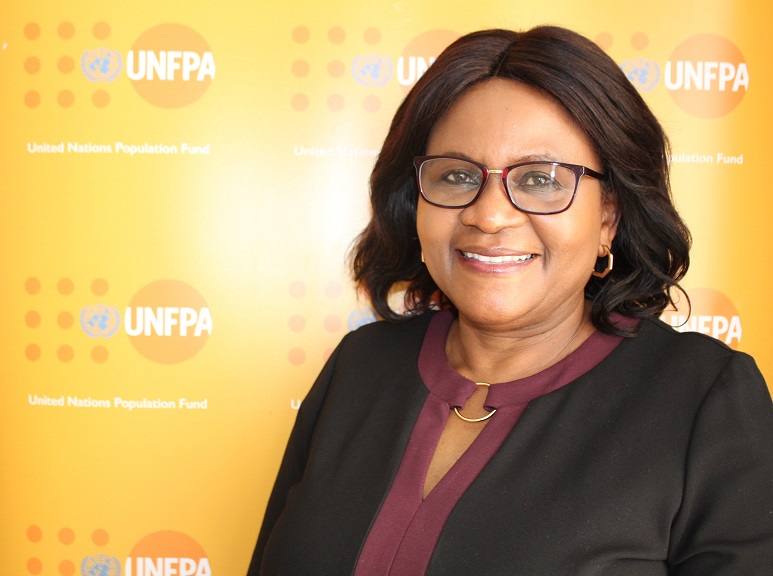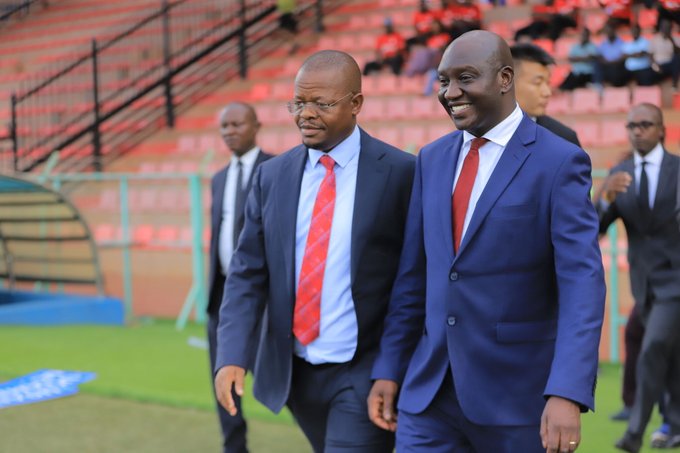GIFT MALUNGA: In the face of gender-based violence, let’s unite to protect women and girls
Women and girls face this violence in all its forms: sexual, physical, emotional, economic, social, cultural, cyber, trafficking, exploitation and conflict-related.

Not long ago – and still fresh in our minds – we woke up to tragic news that sent shockwaves around the world. The life of Rebecca Cheptegei, Uganda’s award-winning athlete was brutally cut short by her own husband in a heinous act of domestic violence.
Rebecca’s horrific murder and subsequent burning of her body served as a stark reminder of the devastating consequences of gender-based violence. It also reminds us that gender-based violence affects women and girls from all walks of life, and knows no social, economic or national boundaries. But Rebecca’s story is not an isolated incident. Many women and girls in Uganda face similar risks of violence, abuse and even death. Gender-based violence is a reality – a pervasive issue that casts a shadow over the lives of thousands of women and girls, perpetuating a culture of fear, deeply-rooted inequalities and shattering dreams. It undermines the health, dignity, security and autonomy of survivors and remains shrouded in silence, supported by cultural beliefs and values that sustain, justify or dismiss it as an ordinary part of relationships.
Women and girls face this violence in all its forms: sexual, physical, emotional, economic, social, cultural, cyber, trafficking, exploitation and conflict-related. These forms are often interconnected and can have severe physical, emotional and psychological consequences for survivors.
The statistics paint a grim picture. According to the Uganda Demographic and Health Survey 2022, 43% of women aged 15-49 have experienced physical, sexual or emotional spousal violence in the last 12 months Deeply ingrained cultural practices, such as child marriage, which affects 33% of adolescent girls by the age of 19, further fuel this crisis. The Uganda Annual Police Crime Report (2023) reveals that a total of 14,826 sexual offenses were recorded, representing 6.5 percent of overall crimes, with 13,144 defilement cases, comprising a staggering 88% of these offenses. This translates into 36 girls below 18 years old being defiled every day in Uganda. These are not just numbers; they are daughters, sisters, mothers robbed of their futures.
As the world marks 16 Days of activism against gender-based violence, the theme, Towards 30 Years of The Beijing Declaration and Platform for Action: Unite to End Violence Against Women, is important in ensuring accountability for commitments made and progress achieved towards achieving gender equality and women empowerment since the landmark UN 1995 Beijing Conference, also known as the Fourth World Conference on Women.
We must remember the commitments made through the adoption of the Beijing Declaration and Platform for Action, a landmark document outlining 12 critical areas of concern for women’s empowerment including poverty, education, health, violence against women and human rights. UNFPA remains steadfast in its commitment to this Platform, working tirelessly to promote gender quality and women empowerment, preventing violence against women and girls, and ensuring access to integrated sexual and reproductive health rights.
In Uganda, this means challenging the social, economic and cultural practices that perpetrate inequality, including female genital mutilation, child marriage and other harmful practices. Every woman has the right to bodily autonomy, including the freedom to make informed choices about her own body and well-being and plan her family without coercion, discrimination or violence. This vision is also aligned to the Goal 5 of the UN Sustainable Goals (SDGs), which aims to achieve gender equality and empower all women and girls by ending all forms of discrimination against women and girls, and eliminating all forms of violence against women and girls in all spheres by 2030.
Gender-based violence is never acceptable. No woman and girl should ever have to suffer discrimination, violence or inequality because of her gender. Every individual deserves to live a life free from fear and abuse, with the opportunity to thrive in a world that values, respects and protects their rights. But to achieve this vision, we need more than words. Global action is urgently needed to protect women and girls from this violence. They need peace in their homes and in their communities. Governments need to provide better support for survivors, by ensuring accessible shelters, health services and robust legal frameworks to hold perpetrators to account. We must equip women and girls with the tools to recognize abuse, seek help and build lives free from violence. Men and boys have a crucial role to play in defying the destructive stereotypes that normalize violence and actively working to end it.
Rebecca’s tragic fate must be a turning point. Let us honour her memory by igniting a fire of change that burns away the scourge of gender-based violence. As we mark 16 Days of activism, taking action to end gender based violence is not only the right thing to do – it’s also a smart investment for individuals, families, communities, nations and the world as a whole. Let us create a Uganda where every woman and girl can live in safety, with dignity, and with the freedom to pursue their dreams.
The author, Ms. Gift Malunga is the UNFPA Representative, Uganda







